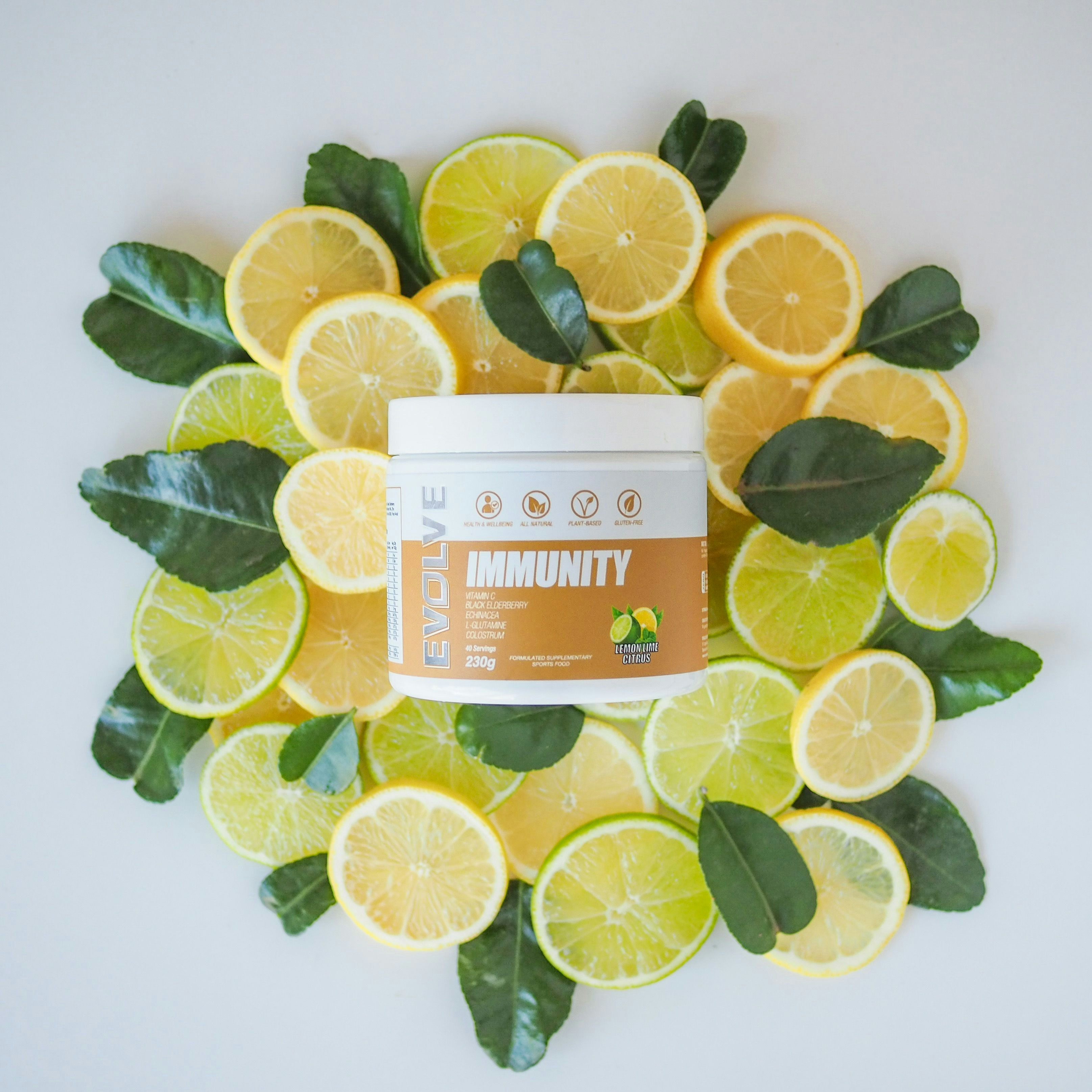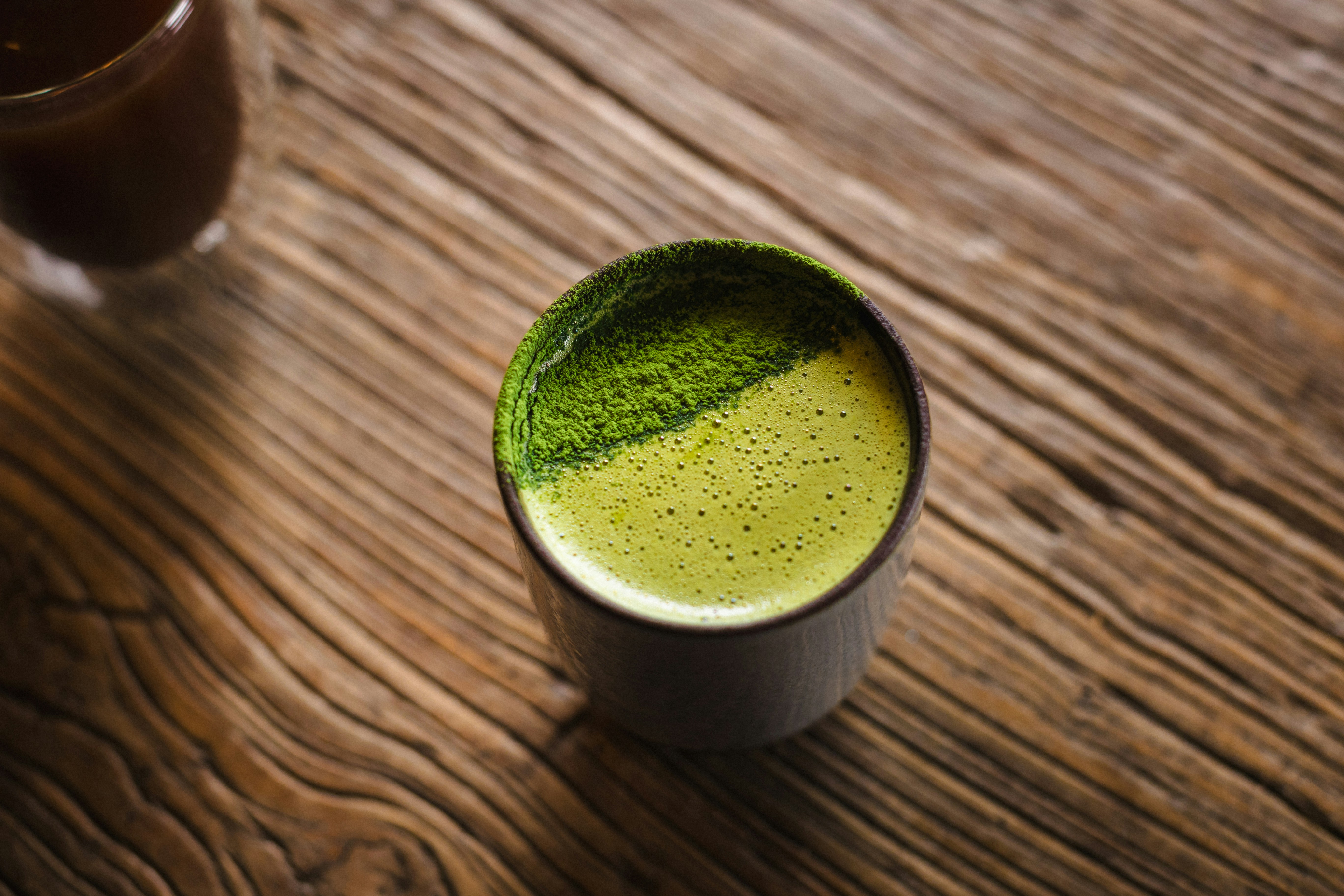Introduction: Understanding Immunity in Holistic Health
The concept of immunity plays a pivotal role in comprehending holistic health, encapsulating not only the physiological aspects of defense against diseases but also the intertwined dimensions of emotional, mental, and spiritual well-being. In contemporary societies, there is a growing concern about how lifestyle choices impact our immune system; stress, poor nutrition, and lack of sleep are common factors that can weaken this essential bodily function. Recognizing that immunity is not solely a physical construct but rather a multifaceted aspect of health opens up avenues for holistic approaches to strengthening it.
From a physiological standpoint, immunity serves as the body’s defense mechanism against pathogens, enabling us to fend off infections and maintain overall health. However, in modern holistic approaches, we acknowledge that our immune responses are significantly influenced by mental and emotional states. Stress, anxiety, and depression can lead to a weakened immune system, highlighting the need for a comprehensive approach to health that integrates emotional resilience and mental clarity alongside physical strength.
Moreover, spiritual health contributes to the overall immunity by fostering a sense of purpose and connection with oneself and the universe. This aspect often encourages individuals to engage in practices such as meditation, mindfulness, and community involvement, all of which can fortify one’s immune system. As such, the intricate web connecting immunity with every facet of well-being reinforces the concept that achieving optimal health requires more than just addressing physical ailments. Understanding and nurturing our immunity is essential, as it serves as the heart of holistic health practices, guiding us towards a more balanced and fulfilling life.
The Traditional Uses of Immunity in Health Practices
The concept of immunity has been an integral component of health practices throughout history, woven into the fabric of various cultures and traditions. Diverse societies have developed unique approaches that emphasize the importance of strengthening the immune system through holistic means, often blending herbal remedies, communal rituals, and dietary practices. In many traditional medicine systems, the goal has always been to maintain balance within the body, allowing the immune system to function optimally.
Herbal remedies have long been esteemed for their immunomodulatory properties. For instance, in Traditional Chinese Medicine (TCM), herbs like astragalus and echinacea have been traditionally used to enhance immunity and prevent illness. Similarly, Ayurvedic practices from India recommend adaptogenic herbs such as ashwagandha and holy basil as effective means to bolster the body’s defenses. These herbs are often integrated into daily routines through teas, tinctures, or food preparations, illustrating a practical application of holistic health principles.
Knitting together community support and wellness rituals also plays a crucial role in fostering immunity. Many indigenous cultures have rituals that involve gathering to share food, engage in traditional dance, or participate in ceremonies that promote mental and emotional well-being. Such communal efforts not only strengthen social ties but also enhance the collective immune response, a notion supported by modern research linking social engagement to improved health outcomes.
Dietary traditions are similarly pivotal in supporting immune health. Cultures around the world utilize foods rich in vitamins, minerals, and antioxidants, such as fermented products or nutrient-dense fruits and vegetables. For example, traditional Mediterranean diets, rich in legumes, nuts, and olive oil, have been associated with stronger immune function. These practices emphasize the idea that a healthy diet is foundational for maintaining robust immunity.
Incorporating personal anecdotes into this narrative can help create a deeper connection to these practices, demonstrating their relevance across generations. By honoring these time-honored traditions, individuals can foster a nuanced understanding of how holistic health approaches contribute to enhanced immunity, highlighting the wisdom of past generations in contemporary health practices.
Modern Research: The Science of Immunity
The field of immunology has advanced significantly in recent years, shedding light on the complex mechanisms behind the human immune system and its pivotal role in health. Immunity, a multifaceted defense network, comprises various cells, tissues, and organs that work collaboratively to protect the body against pathogens, such as viruses and bacteria. Current research indicates that the immune system is not merely a passive shield but an active player that constantly adapts and learns from exposure to different pathogens. This adaptability is a crucial aspect of maintaining one’s health, as it influences how effectively the body can respond to illnesses.
Recent studies emphasize the importance of both innate and adaptive immunity. The innate immune system provides the first line of defense, acting quickly upon detecting threats, while adaptive immunity develops specific responses through memory cells, generating a tailored defense against recurrent infections. This synergistic relationship highlights the necessity of supporting both branches for optimal health.
The implications of these findings extend beyond traditional medicine and into lifestyle choices. For instance, emerging research suggests that a balanced diet, regular physical activity, and adequate sleep significantly bolster immune functions. Antioxidants and micronutrients, such as vitamins C and D, play crucial roles in modulating immune responses, as recent findings suggest adequate levels are necessary to optimize functionality. Furthermore, the impact of stress on immunity has been increasingly recognized, with chronic stress negatively influencing immune balance.
However, it is essential to approach this science with a discerning perspective. While the insights from immunology are enlightening, they should not replace established medical practices. Current research continues to evolve, and much remains to be understood about the immune system. Disclaimers about the limits of present knowledge must be heeded, ensuring that individuals do not solely rely on emerging data for health decisions. Understanding the science of immunity provides a foundation for individuals to make informed lifestyle choices that support their overall well-being.
Building Immunity Through Nutrition
Nutrition is a cornerstone of health, playing a pivotal role in fortifying the immune system. A well-balanced diet that includes a variety of nutrient-rich foods can significantly enhance the body’s ability to fight infections and diseases. Key vitamins and minerals such as vitamin C, vitamin D, zinc, and selenium are essential for the proper functioning of immune cells. Citrus fruits, leafy greens, nuts, seeds, and fatty fish are excellent sources of these nutrients, making them vital components of an immunity-boosting diet.
Contrary to some popular misconceptions, there is no one-size-fits-all diet for immunity. While trending diets may promise health benefits, they often overlook the unique nutritional needs of individuals. Personalized nutrition, which considers individual dietary preferences, health conditions, and lifestyle factors, is crucial for achieving optimal immune support. For instance, people with food allergies or intolerances will need to modify their diets to ensure they still receive essential nutrients without triggering adverse reactions.
Practical strategies for enhancing your diet can be easily integrated into daily routines. Incorporating a rainbow of fruits and vegetables into meals ensures a wide range of antioxidants that combat oxidative stress. Whole grains, lean proteins, and healthy fats also play a significant role in maintaining energy levels and supporting overall health. Additionally, cooking methods such as steaming or grilling can preserve the nutrient content of foods, allowing for maximum health benefits.
Moreover, certain recipes can be particularly effective in promoting immunity. For example, a hearty vegetable soup packed with garlic, spinach, and chickpeas not only provides vital nutrients but also helps keep hydration levels optimal. Similarly, smoothies made with berries, yogurt, and spinach can serve as delicious snacks that bolster the immune system.
Through informed dietary choices and a commitment to personalizing nutrition, individuals can build and sustain a robust immune system, laying the foundation for overall well-being.
The Role of Stress Management in Immune Health
Stress management plays a critical role in maintaining and enhancing immune health. The intricate relationship between stress and immune function is well-documented, revealing that prolonged exposure to stress can significantly weaken the body’s defenses. Chronic stress activates the body’s stress response system, leading to elevated levels of cortisol and other stress hormones, which can suppress the immune system’s effectiveness in fighting off infections and diseases.
When the body experiences constant stress, the balance of immune processes is disrupted. This disruption hampers the production of immune cells, such as lymphocytes, which are essential in defending against pathogens. Furthermore, chronic stress can lead to inflammation, which has been linked to various health issues ranging from autoimmune diseases to cardiovascular problems. Addressing and managing stress is, therefore, essential for anyone aiming to improve their overall health and well-being.
Holistic practices like meditation, yoga, and mindfulness have proven beneficial in mitigating stress and subsequently boosting immune responses. Meditation encourages relaxation, reduces anxiety, and fosters a meditative state that can enhance the body’s natural defenses. Research indicates that even short, regular sessions of meditation can lead to significant reductions in stress levels, which supports improved immune function. Similarly, yoga combines physical postures, breath control, and mindfulness, offering a comprehensive approach to managing stress. It not only promotes relaxation but also enhances overall physical health.
Mindfulness, the practice of being fully present in the moment and acknowledging thoughts and feelings without judgment, has also shown promising results. It helps reduce stress, improve emotional resilience, and enhance one’s immune response. Personal accounts reveal that individuals who’ve incorporated these practices into their daily routines have experienced a marked improvement in mental clarity, emotional stability, and overall health outcomes. By prioritizing stress management through holistic practices, individuals can significantly strengthen their immunity and safeguard their health.
Emotional Well-Being and Immune Response
The intricate relationship between emotional well-being and immune function has garnered considerable attention in recent years. Research consistently suggests that our emotional state can have a profound impact on our immune response, underpinning the concept of the mind-body connection. Emotions such as stress, anxiety, and depression can suppress immune function, whereas positive emotions can enhance it, promoting overall health and resilience.
Scientific studies have illustrated the biochemical pathways linking emotions to immune responses. For instance, prolonged stress triggers the release of cortisol, a hormone that can inhibit the production of immune cells. Conversely, feelings of joy and contentment have been shown to boost the activity of natural killer cells, which play a crucial role in combating infections and diseases. This evidence emphasizes the importance of maintaining emotional health as part of a holistic approach to strengthening immunity.
Anecdotal evidence also highlights how emotional well-being influences immune health. Consider the account of a cancer survivor who credits her recovery to not only medical treatment but also her positive outlook and strong support network. She shared that engaging in activities that brought her joy, such as painting and spending time with loved ones, significantly contributed to her emotional stability and, by extension, her immune resilience. Similar stories abound, showcasing how laughter, mindfulness, and nurturing relationships can foster both emotional contentment and a healthier immune system.
Ultimately, nurturing emotional well-being is an essential component of maintaining a robust immune response. Holistic health approaches that incorporate emotional support, stress management, and positive lifestyle changes can significantly influence immune function. By prioritizing emotional health, we not only enhance our psychological resilience but also fortify our bodies against illness, illustrating the profound interconnection between the mind and immune system.
Spiritual Practices and Immune Strength
Spirituality plays a pivotal role in fostering overall health and wellbeing, significantly impacting immune strength. Embracing spiritual practices such as prayer, meditation, and gratitude can induce a state of relaxation and reduce stress, which are known to bolster the immune system. Research has indicated that individuals engaged in regular spiritual activities often experience lower levels of cortisol, the body’s primary stress hormone, which is closely associated with immune function.
Prayer, for instance, serves as a powerful medium for emotional expression and connection to something greater than oneself. Individuals who partake in prayer often report heightened feelings of calmness and assurance, translating into physical manifestations that can enhance immune responses. Community support is another vital component that uplifts spiritual health. People surrounded by supportive networks, whether they stem from religious congregations or spiritual groups, can experience a sense of belonging that positively influences their mental and emotional states, thereby impacting physiological health, including immune function.
Moreover, gratitude practices have emerged as a profound tool for enhancing spiritual health. Individuals who consistently engage in gratitude-oriented reflections experience improved emotional wellbeing, which correlates with better overall health outcomes. In practicing gratitude, people often focus on the positive aspects of life, diverting attention away from stressors that may compromise immunity. Anecdotes from individuals reveal how these spiritual practices provide not just emotional support but also cultivate resilience against illness, leading to improved immune responses.
In summary, integrating spiritual practices into daily routines can substantially contribute to strengthening immunity. By fostering emotional relaxation, enhancing social connections, and promoting a positive outlook on life, these practices serve as a foundational aspect of holistic health, ultimately leading to a more resilient immune system.
Cultural Rituals that Strengthen Community and Immunity
Cultural rituals play a pivotal role in promoting community health and, by extension, enhancing individual immunity. These practices often bring individuals together, fostering a sense of belonging and collective well-being that can significantly impact one’s immune system. One prominent example can be found in various indigenous cultures, where storytelling sessions not only transmit cultural values but also strengthen social bonds. These gatherings create a supportive environment that can alleviate stress and anxiety, both of which are known to compromise the immune system.
Another cultural practice that exemplifies communal health benefits is the concept of communal feasting. In many societies, meals are more than just sustenance; they are an opportunity for families and communities to come together. For instance, in Mediterranean cultures, the sharing of meals made from fresh, locally sourced ingredients fosters overall wellness. These gatherings encourage the consumption of nutrient-dense foods rich in antioxidants, vitamins, and minerals essential for maintaining a robust immune system. Moreover, the social interaction that accompanies these feasts can enhance emotional well-being, further contributing to one’s health and immunity.
Additionally, numerous cultures utilize music and dance in communal celebrations as a means to strengthen bonds. For example, in African cultures, rhythmic drumming and dancing not only serve as forms of expression but also as communal exercises that promote physical health. Engaging in such physical activities boosts circulation and increases the body’s natural defenses, thus providing an immunity-enhancing effect. Personal anecdotes abound of individuals who have experienced profound resilience during difficult times, attributing their strength to the unwavering support they received during these community gatherings.
Overall, cultural rituals serve to unite communities and promote practices that bolster individual health. By participating in these time-honored traditions, individuals not only reinforce their personal immune systems but also contribute to the wellness of their communities, creating a synergy that supports holistic health.
Conclusion: Embracing Holistic Approaches for Immunity
In the contemporary landscape of health and wellness, the importance of a robust immune system cannot be overstated. Throughout this blog post, we have explored the multifaceted nature of immunity, emphasizing that it is intricately linked to physical, mental, emotional, and spiritual health. The concept of holistic health encourages us to view our well-being as a cohesive whole rather than a collection of isolated parts. This paradigm shift reinforces the notion that to strengthen immunity effectively, one must address every aspect of health.
Engaging in physical activities, maintaining a balanced diet, and ensuring adequate sleep are fundamental cornerstones of physical health that significantly bolster the immune system. However, emotional and mental well-being also play crucial roles. Practices such as mindfulness, meditation, and stress management can enhance mental clarity and emotional stability, which directly impacts physiological responses and immunity. Furthermore, nurturing spiritual health through practices aligned with personal beliefs can provide additional layers of support in developing resilience against illnesses.
As we reflect on these interconnected elements, it becomes evident that adopting a holistic approach enables us to create sustainable health practices that foster strong immunity. Each individual’s health journey is unique, and embracing these comprehensive strategies invites personal growth and resilience. Readers are encouraged to reassess their lifestyle choices and consider how the integration of holistic practices can enhance their overall health. By doing so, we not only improve our immune systems but positively impact our quality of life.
Now is the time to take proactive steps toward a more holistic approach to wellness. Consider incorporating diverse practices that cater to your physical and mental health needs, as these are essential for a fortified immune system. Cultivating a balanced lifestyle can pave the way to better health outcomes and a more vibrant life.








Leave a Reply